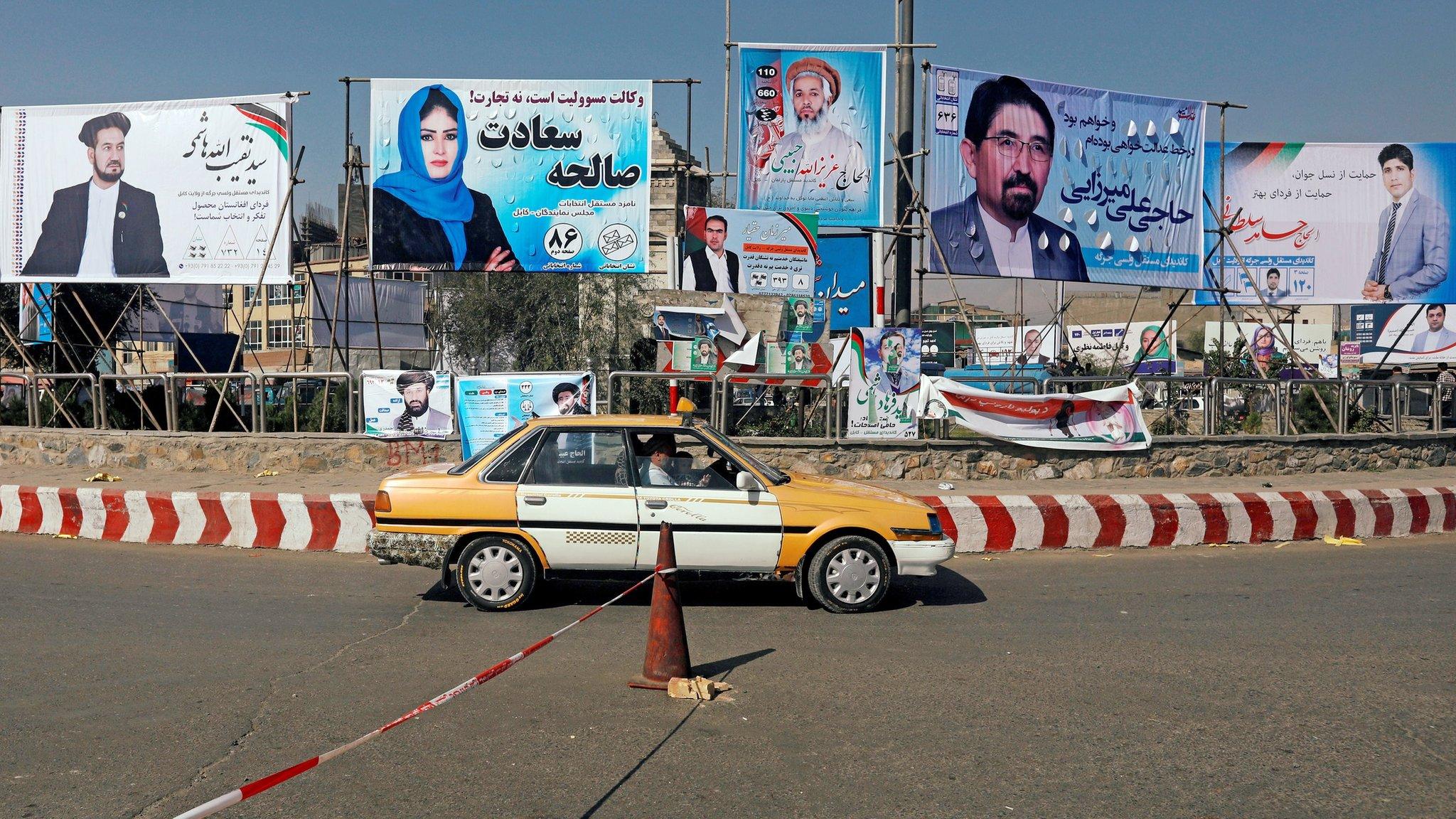Afghanistan election: Voters defy violence to cast ballots
- Published
Lyse Doucet: 'This is not the face of a people cowed by the Taliban'
Voters in Afghanistan have defied deadly attacks to cast ballots in large numbers in the nation's long-awaited parliamentary elections.
Several explosions targeted polling stations, with dozens of people killed or injured in scores of incidents across the country.
Voters unable to cast ballots on Saturday turned out on Sunday as polling was extended in some areas.
A new biometric verification system had caused technical problems.
Violence also marred the election campaigning, with 10 candidates killed in the run-up to the polls. Both the Taliban and the Islamic State group had vowed to disrupt them.
More than 2,500 candidates, including many women, are vying for 250 seats in the legislative elections, which are being held more than three years late.
What are the levels of violence?
Saturday saw dozens of incidents of violence, with at least 36 people killed and 130 injured across the country, but this was still a lower figure than some had feared. Among the incidents:
At least 15 people were killed when a suicide bomber tried to enter a Kabul polling station
Three people were killed and more than 50 injured in the northern city of Kunduz, while another two people died in explosions in Nangarhar AFP reports
Insurgents killed four men heading to a polling station in northern Balkh province, local officials said
Police officers were ambushed in central Ghor province. At least four were killed
The defence ministry has deployed 70,000 members of the security forces to try to ensure the elections pass off peacefully.
But nearly a third of all polling stations were closed because of security concerns.
Security was not the only issue threatening the vote. Past elections have been marred by corruption and fraud, with cases of ballot box stuffing, multiple voting and voter intimidation all documented.
Why the delays in polling?
Voting in Kandahar province had already been put off by a week after the assassination of a top police chief, Gen Abdul Raziq, on Thursday, in an attack claimed by Taliban militants. Polling in Ghazni province has also been delayed.
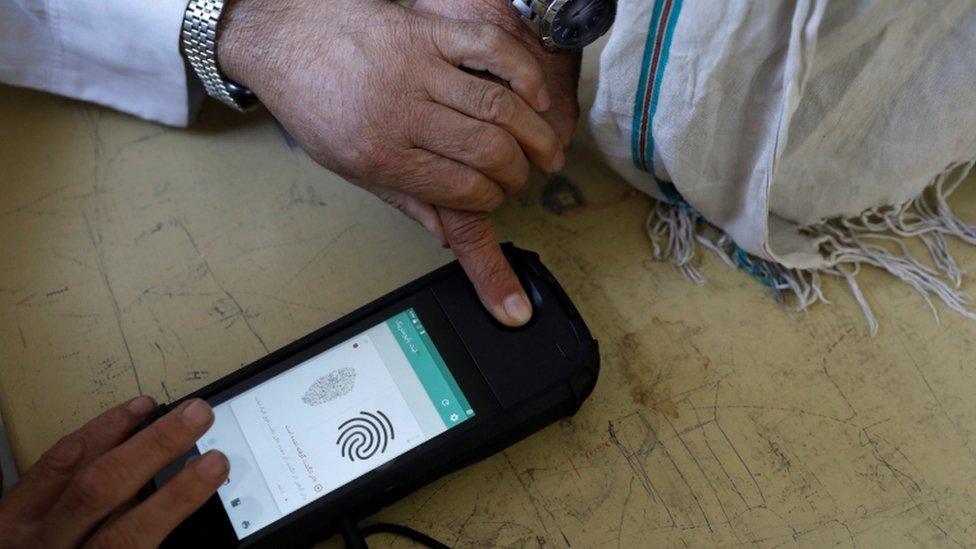
The biometric devices have not led to quick voting
On Saturday, technical and organisational problems stopped voters from casting their ballots at a number of polling stations.
There have been technical hitches with Afghanistan's new biometric voter registration equipment and in the central province of Uruzgan, 15 men were reportedly arrested for trying to break biometric devices because of delays.
The Independent Election Commission says most stations opened their doors late because teachers employed to supervise the voting process failed to turn up on time, according to AFP news agency.
Turnout was still good, with three million out of 8.8 million registered voters casting ballots on Saturday.
Some 253 polling centres opened on Sunday, although similar technical problems were being reported.
The results process will not be quick. Preliminary results are not expected until 20 days after the election, on 10 November.

'We won't let Taliban win'
BBC's chief international correspondent, Lyse Doucet, in Kabul
It is an act of bravery to vote in Afghan elections. We went back to the same polling station we visited in 2014 and crowds were even larger this time. The queue of male voters kept getting longer.
There was a crush of voters in the women's section. So many Afghans told us, "We won't let the Taliban win."
But explosions are killing and injuring voters. Turnout will be low in the most insecure areas. Bad organisation is an enemy too. Afghans are angrily complaining about polling stations opening hours late, election material not showing up.
But many believe even holding this election is an achievement: to show that Afghan officials and security forces can do it, and to usher in a more legitimate parliament to replace a discredited assembly and try to move toward presidential elections next year and Taliban peace talks.
But if it is seen as a "bad election," it could be more consequential than not holding one at all.
Allow X content?
This article contains content provided by X. We ask for your permission before anything is loaded, as they may be using cookies and other technologies. You may want to read X’s cookie policy, external and privacy policy, external before accepting. To view this content choose ‘accept and continue’.

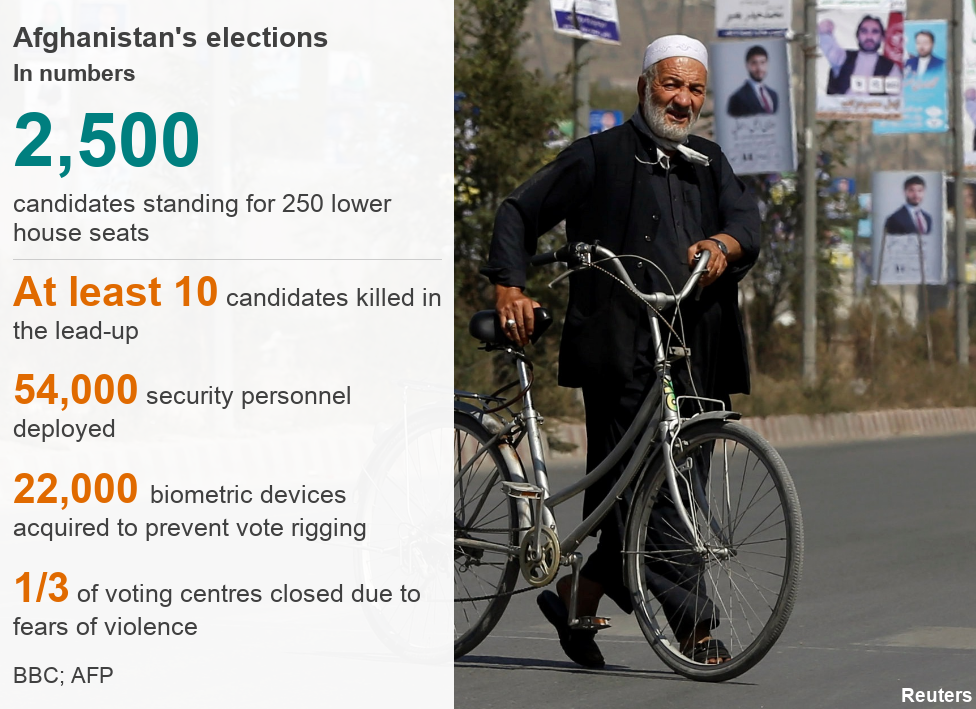

Why do the elections matter?
Most Afghans are desperate for a better life, jobs, education and an end to the war with the Taliban.
For the country's foreign partners, seeing a flourishing democracy would be the return they're seeking after many years of investment, billions of dollars spent and thousands of lives lost in more than a decade of fighting.
Afghan "war on terror" generation votes
Many candidates are young and well-educated. They are promising to help deliver change in the conflict-torn country.
But many Afghans have come to view all politicians as corrupt and ineffective, correspondents say.
The polls should have been held when the current assembly's five-year term ended in 2015. But the standoff after the disputed 2014 presidential election changed all that, bringing the country to the brink of civil war.
Naheed Farid, Afghan MP: "Some women want to wear make-up"
However, although parliament reviews and ratifies laws, real power lies with the presidency, and this election will be seen as a key test ahead of the all-important presidential elections due in April 2019.
- Published19 October 2018
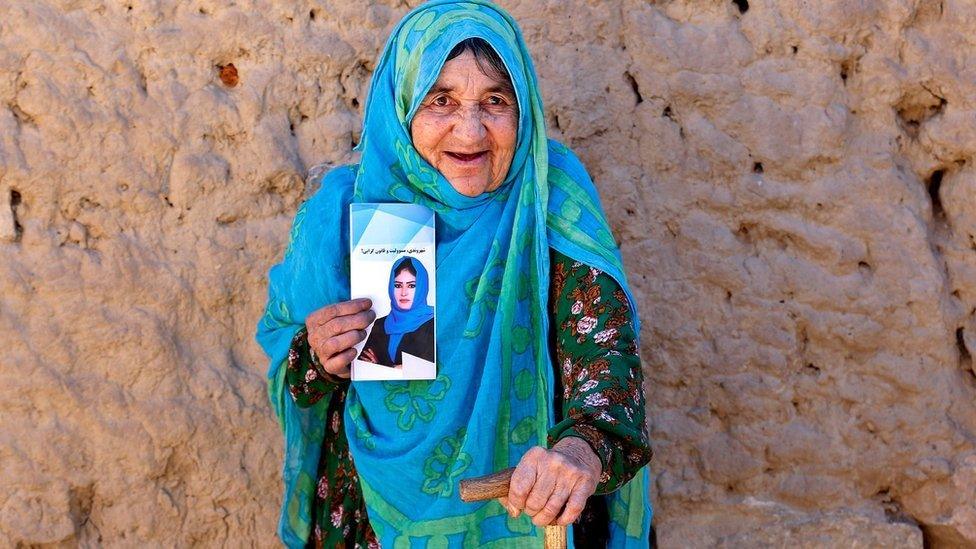
- Published31 January 2018
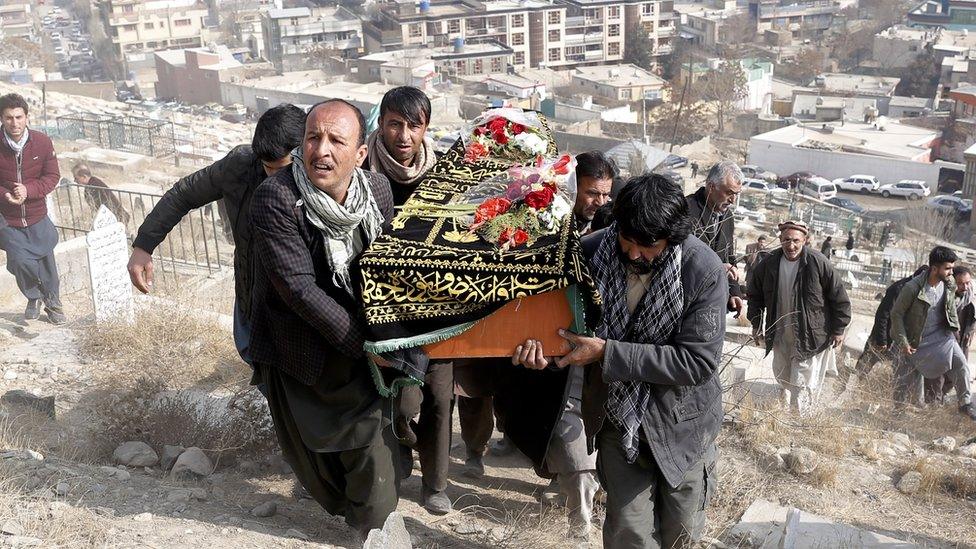
- Published2 October 2018
